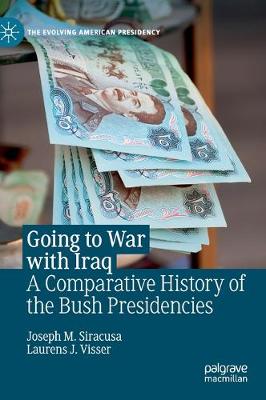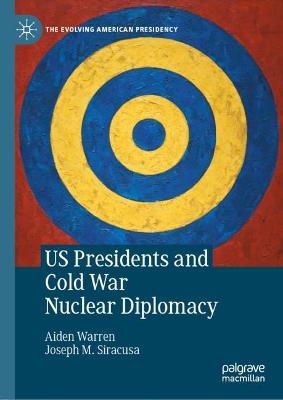The Evolving American Presidency
2 total works
Going to War with Iraq: A Comparative History of the Bush Presidencies is the account of two United States presidents and their decision to intervene militarily in Iraq, examining the comparative domestic and international contexts in which the decisions to go to war were made by George H. W. Bush and his son George W. Bush. This book centers specifically on the issue of Saddam Hussein at home and abroad, in the lead up to hostilities with Iraq in 1991 and 2003, respectively. For George H.W. Bush, in 1991, the threat posed by Saddam came from his perceived capabilities as Iraq's leader, whereas for George W. Bush, in 2003, it was the threat posed by Saddam's perceived intentions as Iraq's leader. In both cases, the result was war with Iraq.
US Presidents and Cold War Nuclear Diplomacy
by Aiden Warren and Joseph M. Siracusa
This book will illustrate that despite the variations of nuclear tensions during the Cold War period-from nuclear inception, to mass proliferation, to arms control treaties and detente, through to an intensification and "reasonable" conclusion (the INF Treaty and START being case points)-the "lessons" over the last decade are quickly being unlearned. Given debates surrounding the emerging "new Cold War," the deterioration of relations between Russia and the United States, and the concurrent challenges being made by key nuclear states in obfuscating arms control mechanisms, this book attempts to provide a much needed revisit into US presidential foreign policy during the Cold War. Across nine chapters, the monograph traces the United States' nuclear diplomacy and Presidential strategic thought, transitioning across the early period of Cold War arms racing through to the era's defining conclusion. It will reveal that notwithstanding the heightened periods when great power conflict seemed imminent, arms control fora and seminal agreements were able to be devised, implemented, and provided a needed base in bringing down the specter of a cataclysmic nuclear war, as well as improving bilateral relations. This volume will be of great interest to scholars and students of American foreign policy, diplomatic history, security studies and international relations.

